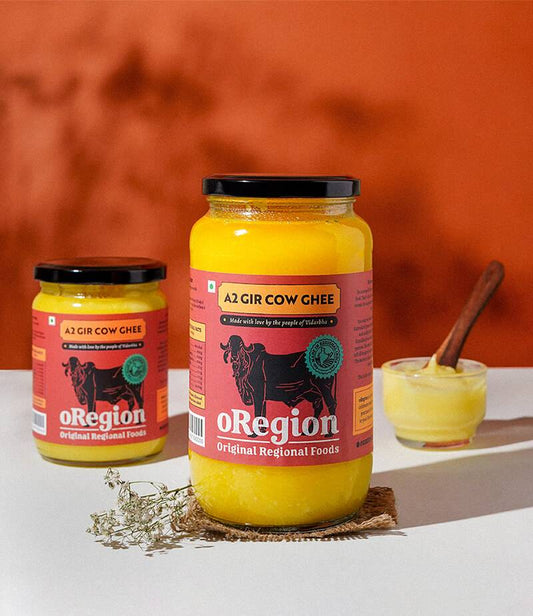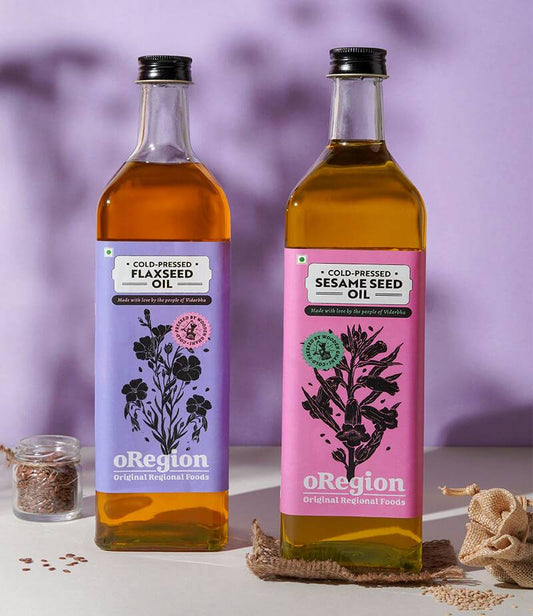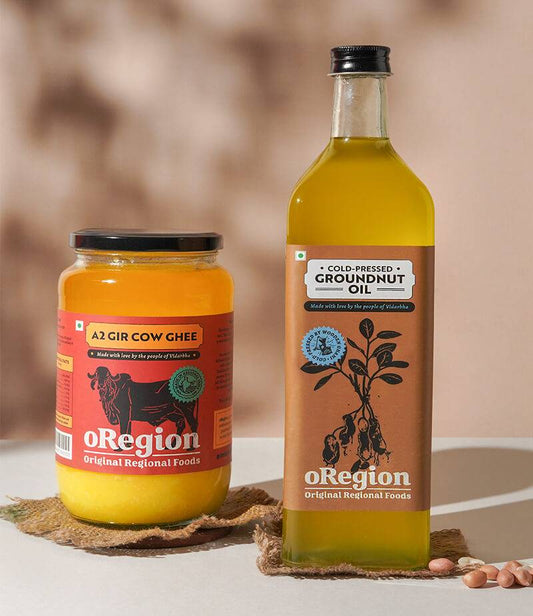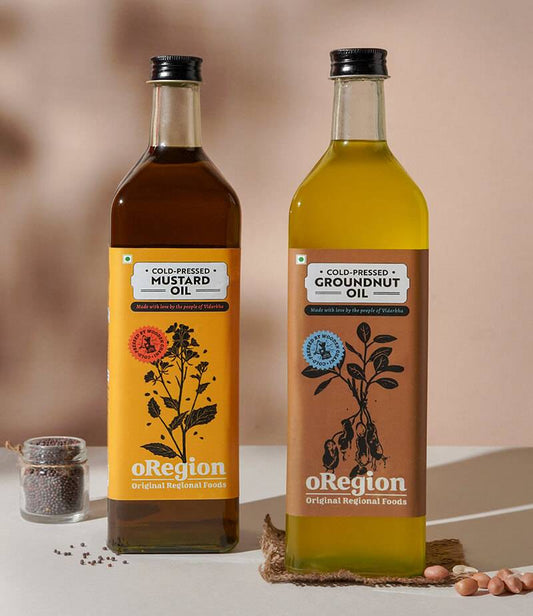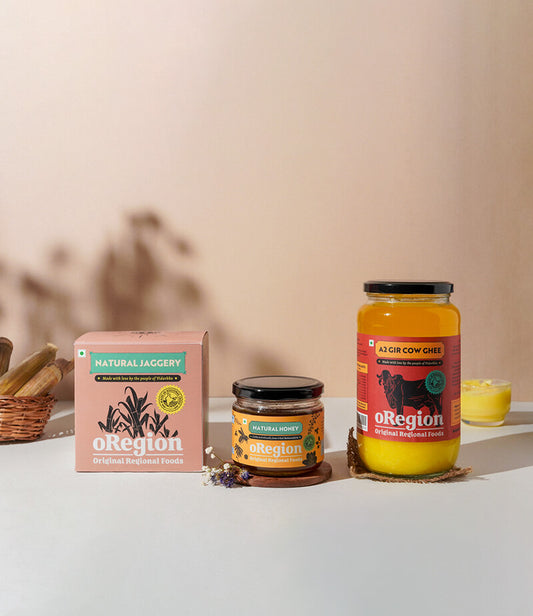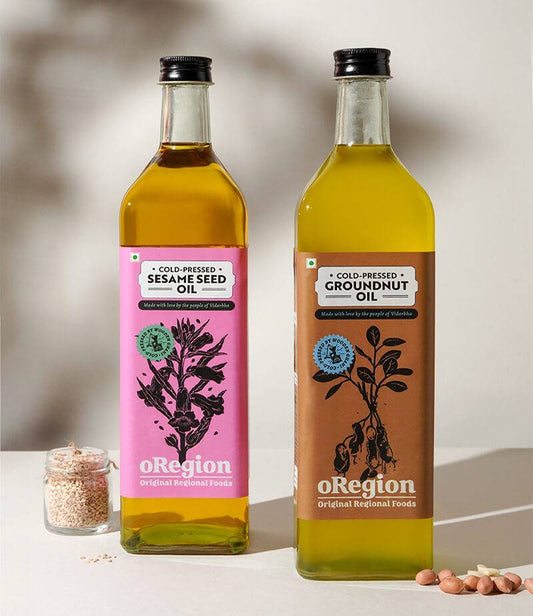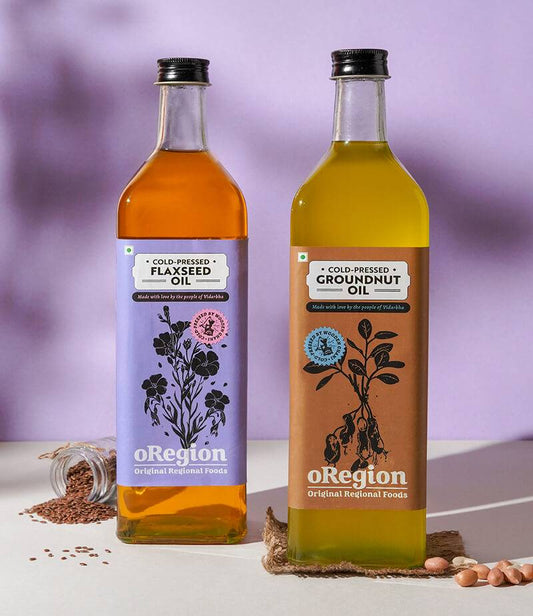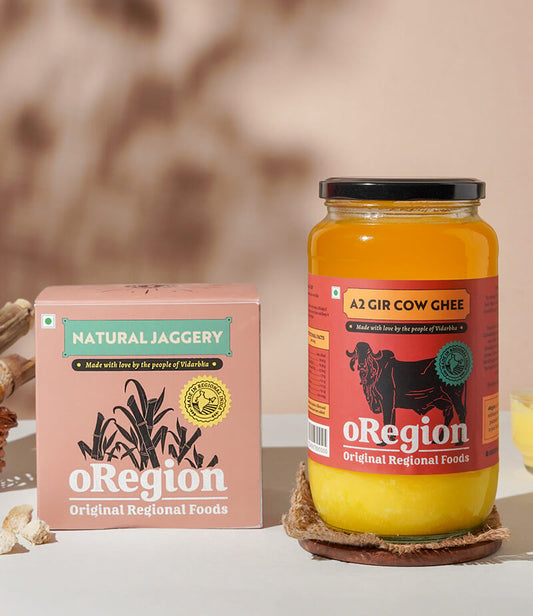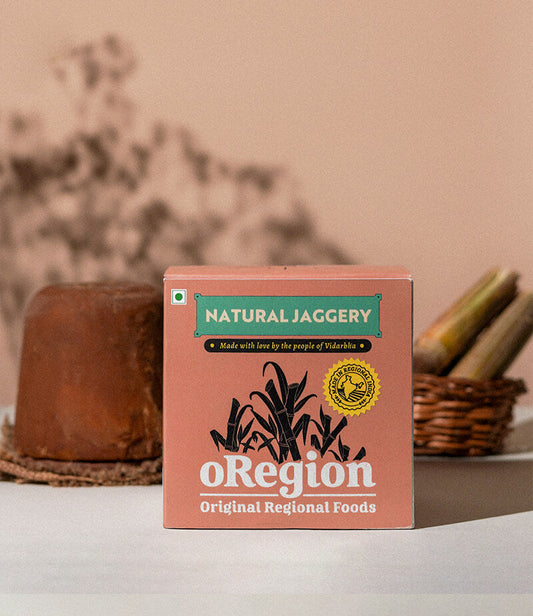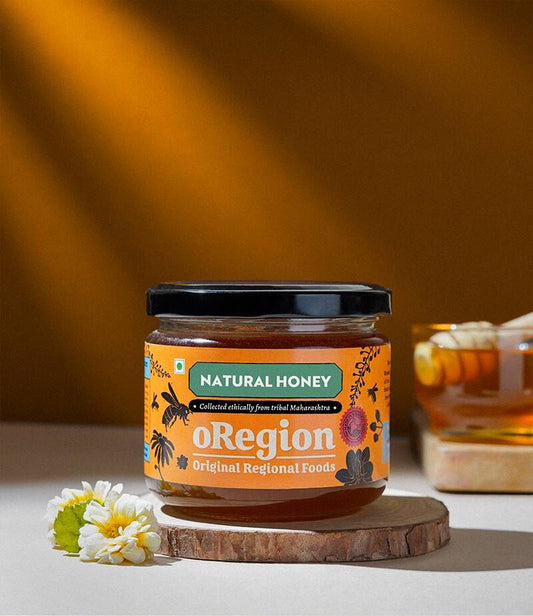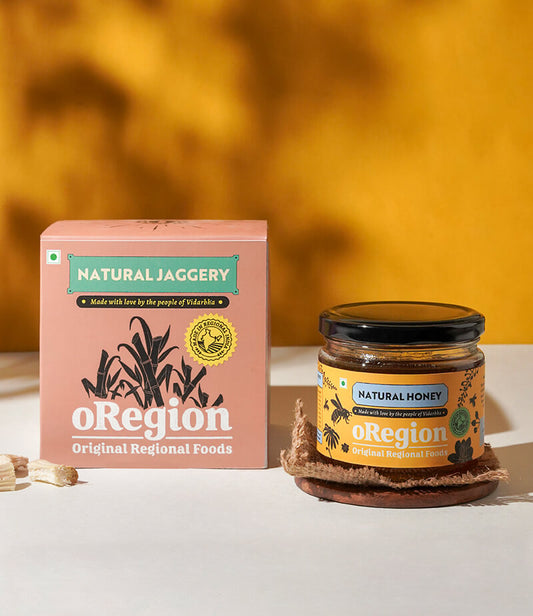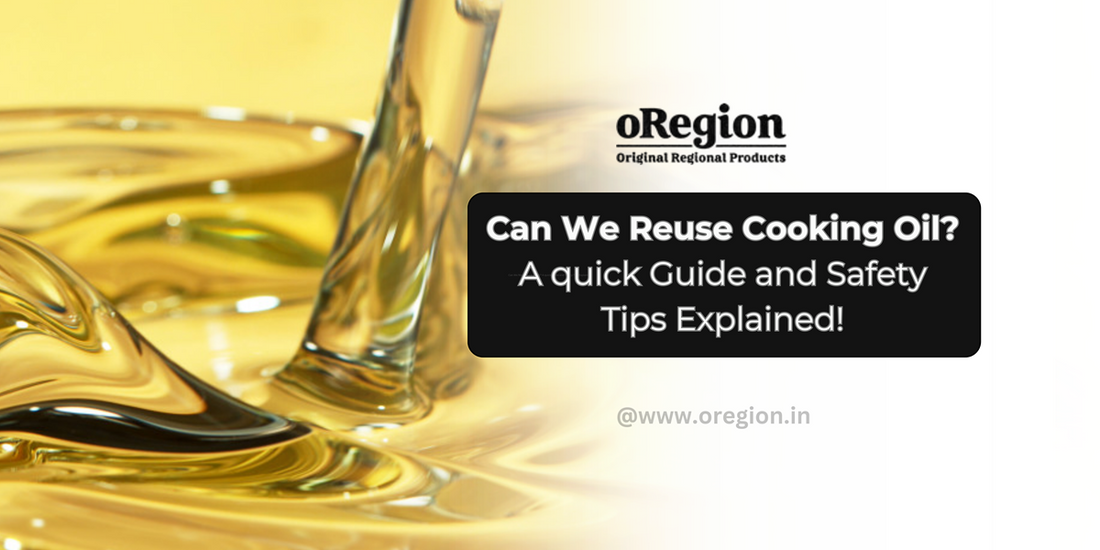
Can We Reuse Cooking Oil? A quick Guide and Safety Tips Explained!
By oregion foodsCooking oil is a staple in every kitchen, but one question continues to spark debate: Can we safely reuse cooking oil? The answer isn't a simple yes or no. While reusing oil seems economical and environmentally friendly, there are potential health risks involved. However, with the right knowledge, you can make an informed decision. Let's dive deep into the science, safety tips, and the best practices for reusing cooking oil, especially when using high-quality cold-pressed oils from oRegion.
Why Do People Reuse Cooking Oil?
A recent survey we conducted with over 900 participants revealed some interesting insights about reusing cooking oil. According to the results, 33% of respondents believe it is safe to reuse cooking oil, while 67% feel it is not a good practice due to health concerns. But is reusing cooking oil truly hazardous, or is it simply misunderstood? The answer depends on the type of oil you use and how you handle the reusing process.
The Science Behind Reusing Cooking Oil
Reusing cooking oil can be safe if done correctly, but several chemical reactions occur when oil is heated repeatedly. Let's explore the scientific aspects:
-
Oxidation and Free Radicals
When oil is exposed to high temperatures and oxygen, it undergoes oxidation, leading to the formation of free radicals. These unstable molecules can damage cells, contributing to chronic inflammation, heart disease, and even cancer.
-
Polymerization and Toxic Compounds
Repeated heating leads to polymerization, where oil molecules bond together, forming thick, sticky compounds. This not only affects the taste but also creates harmful substances like acrolein and trans fats, which are linked to digestive issues and cardiovascular diseases.
-
Nutrient Degradation
Cooking oil, especially refined oils, loses nutrients when heated. This happens twice—first during factory processing and again during cooking. However, cold-pressed oils like oRegion Groundnut Oil retain more nutrients but still degrade if overheated or reused excessively.
Cold-Pressed vs. Refined Oil: What's the Difference?
Not all oils react the same way to heat. The type of oil you choose plays a significant role in whether it's safe to reuse.
-
Refined Oils
Refined oils are processed at high temperatures, stripping away natural antioxidants and nutrients. They have a higher smoke point but become toxic faster when reheated. The oxidation process accelerates, releasing harmful aldehydes and free radicals.
-
Cold-Pressed Oils
Cold Pressed Oils, such as oRegion’s Cold Pressed Groundnut Oil, Cold Pressed Mustard Oil, and Flaxseed Oil, are extracted without heat, preserving antioxidants like vitamin E and polyphenols. These antioxidants enhance stability and reduce the formation of harmful compounds when reused. However, they are not immune to degradation if reheated multiple times.
How Often Can You Reuse Cooking Oil?
There isn't a one-size-fits-all answer, as the frequency of reuse depends on several factors:
-
Type of Oil Used
Cold Pressed Oils, including oRegion Cold Pressed Mustard Oil, are more stable due to their high antioxidant content. In contrast, refined oils break down more quickly.
-
Cooking Temperature and Duration
High-heat cooking methods like deep frying accelerate oxidation and polymerization, making the oil unsafe to reuse after one or two times. Lower heat methods, such as sautéing, are less damaging, allowing for more reuse.
-
Type of Food Cooked
Foods with high water content or strong flavors (e.g., fish) leave residues, reducing the oil's stability and affecting its taste and safety. On the other hand, frying dry foods like nuts or chips has less impact.
-
Storage Conditions
Proper storage is crucial. Allow the used oil to cool completely, strain out food particles, and store it in an airtight container in a cool, dark place. This minimizes oxidation and extends the oil's shelf life.
Scientific Validation: Is Reusing Oil Safe?
Several studies have explored the impact of reusing cooking oil on health:
-
Oxidation and Inflammation
A study published in the Journal of Nutrition and Metabolism found that reheated oils, especially refined ones, increase oxidative stress and inflammation markers in the body. Cold-pressed oils showed lower levels of oxidation, but they still degraded with repeated use.
-
Cancer Risks
Research from the International Journal of Cancer linked the consumption of repeatedly heated oils to a higher risk of certain cancers, including breast and colorectal cancer, due to the formation of toxic aldehydes and polycyclic aromatic hydrocarbons.
-
Cardiovascular Impact
Studies suggest that trans fats formed during reheating negatively impact cholesterol levels, increasing the risk of heart disease. Cold-pressed oils, rich in Omega-3 and MUFA (monounsaturated fatty acids), are less prone to trans fat formation but still require careful handling.
Best Practices for Reusing Cooking Oil
If you choose to reuse cooking oil, follow these safety tips to minimize health risks:
Choose High-Quality Cold-Pressed Oils
Opt for cold-pressed oils like oRegion’s Groundnut Oil or Cold Pressed Flaxseed Oil, which contain natural antioxidants that enhance stability and reduce harmful compounds.
Monitor the Smoke Point
Never reuse oil that has surpassed its smoke point, as it releases toxic compounds. Cold-pressed oils generally have a lower smoke point than refined oils, so avoid high-heat cooking methods.
Filter and Store Properly
After each use, let the oil cool completely, strain out food particles, and store it in a clean, airtight container away from light and heat. This prevents oxidation and extends the oil’s usability.
Limit Reuse to a Few Times
To be safe, limit the reuse of any oil to a maximum of two or three times. Discard the oil if it becomes dark, thick, or starts to smell rancid.
Avoid Mixing Oils
Do not mix new and old oil or different types of oil. Each oil has its own smoke point and chemical composition, which can lead to unpredictable degradation.
When to Avoid Reusing Cooking Oil
There are certain situations when reusing oil is not advisable:
-
High-Heat Cooking
Deep frying or stir-frying at high temperatures breaks down oil quickly. If the oil starts to smoke or foam, discard it immediately.
-
Cooking Fish or Foods with Strong Odors
These foods leave behind flavors and compounds that negatively impact the taste and safety of the oil.
-
Health Conditions
If you have digestive issues, heart disease, or a history of cancer, it's better to avoid reused oil altogether.
Final Verdict: Is Reusing Cooking Oil Safe?
Reusing cooking oil is not inherently dangerous if done responsibly. The key is to understand the science behind it and follow best practices. Cold-pressed oils from oRegion, like Groundnut Oil, Mustard Oil, and Flaxseed Oil, offer better stability due to their natural antioxidants. However, even they degrade with excessive reheating.
To minimize health risks:
-
Opt for cold-pressed oils with high antioxidant content.
-
Limit reuse to a few times, ensuring proper filtering and storage.
-
Avoid high-heat cooking methods and watch for signs of rancidity.
Why Choose oRegion Cold-Pressed Oils?
oRegion offers a range of high-quality cold-pressed oils, including:
-
Cold Pressed Groundnut Oil – Ideal for frying with high stability and rich in Omega-3.
-
Cold Pressed Mustard Oil – Perfect for sautéing with anti-inflammatory properties.
-
Cold Pressed Flaxseed Oil – Packed with Omega-3 for heart and brain health.
These oils are minimally processed, retaining essential nutrients and antioxidants, making them safer for reuse.
Conclusion
While reusing cooking oil is a matter of personal choice, doing so safely requires knowledge and caution. By choosing high-quality cold-pressed oils from oRegion and following the right practices, you can enjoy the benefits of reusing oil without compromising your health.
